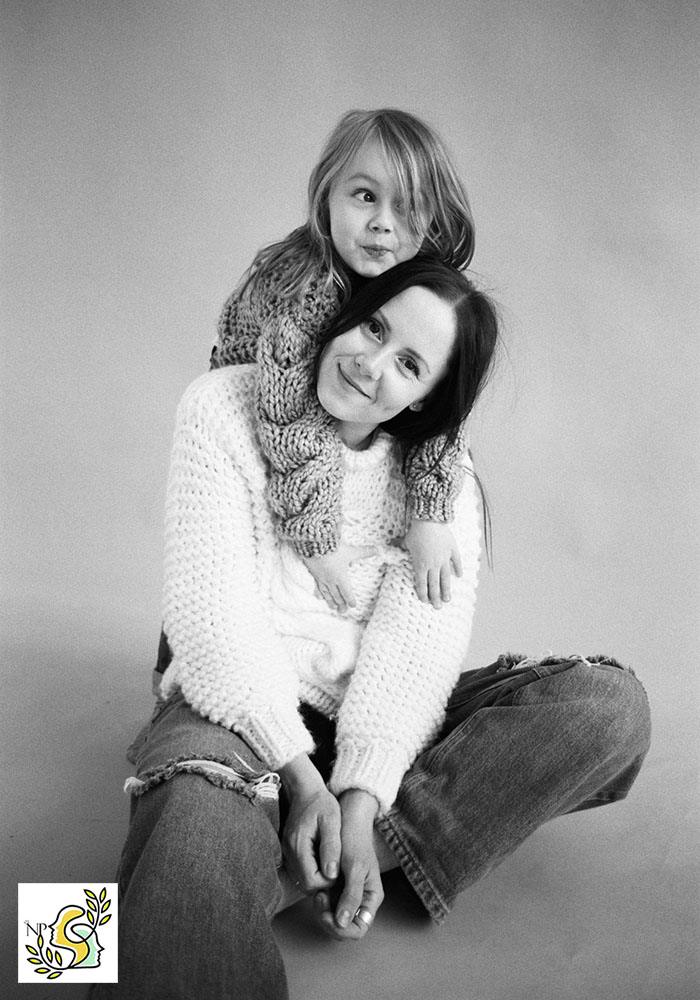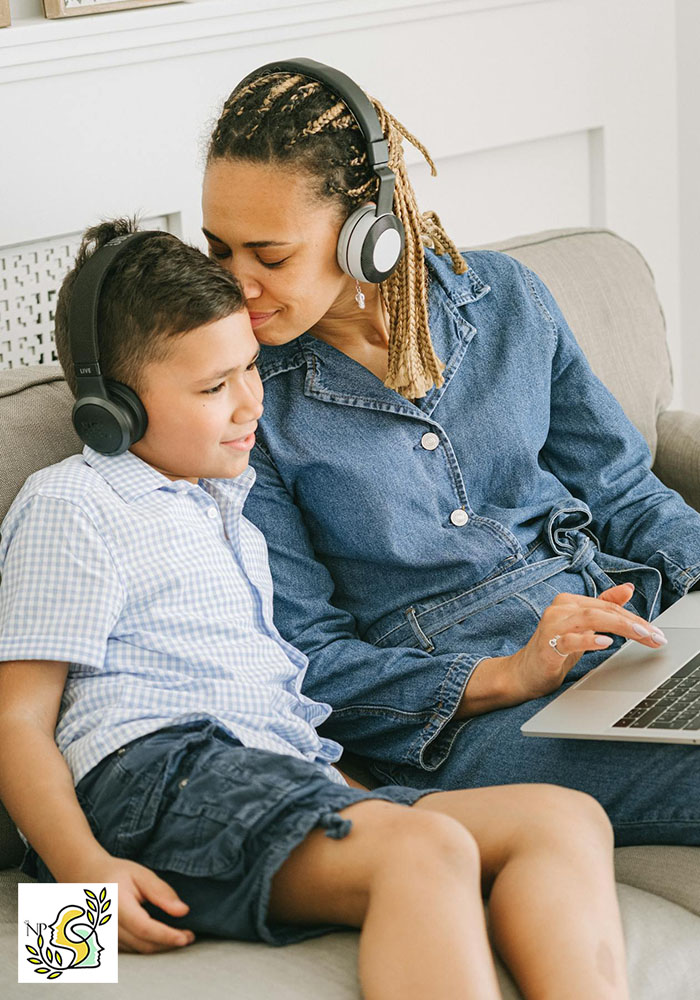Introduction: Co-parenting counseling plays a critical role in fostering effective communication and collaboration between parents who share responsibilities for raising their children, especially after divorce or separation. This specialized form of counseling aims to help parents navigate the challenges of shared parenting while prioritizing the well-being and emotional stability of their children. By addressing conflicts, setting boundaries, and promoting cooperative decision-making, co parenting counseling ensures that both parents contribute positively to their child’s development, regardless of their personal differences. The goal of this essay is to explore the principles, techniques, and benefits of co-parenting counseling. Additionally, it will evaluate how this approach supports healthier family dynamics and mitigates the adverse effects that parental discord can have on children. Through a detailed analysis of the evidence-based strategies employed in co-parenting counseling, this essay seeks to highlight its importance in promoting harmony and stability in modern family structures.
Table of Contents
Co-parenting definition

Co-parenting, also referred to as shared parenting, is a post-divorce arrangement wherein both parents actively collaborate to raise their children despite the dissolution of their marital or romantic relationship. This arrangement ensures that both parents remain involved in their children’s upbringing by jointly participating in decisions, activities, and responsibilities related to their well-being. Co-parenting typically involves frequent communication, the exchange of information regarding the child’s needs and progress, and the coordination of schedules to allow the child to spend meaningful time with both parents.
Three distinct co-parenting styles are commonly observed:
- High-Conflict Co-Parenting: Characterized by frequent disagreements and tension between parents.
- Parallel Co-Parenting: Parents function independently with minimal communication, focusing on their respective parenting roles.
- Cooperative and Collaborative Co-Parenting: Parents work together with mutual respect, prioritizing the child’s best interests.
Research highlights that children raised in environments with unified parenting approaches experience better emotional and psychological outcomes. Effective co-parenting fosters stability and helps normalize life post-divorce, creating a supportive environment for children. Parents can also leverage their unique strengths, providing diverse but complementary influences on their child’s development.
A key principle of co-parenting is protecting children from adult conflicts and responsibilities. Parents should refrain from involving children in disputes, financial issues, or legal matters, and must avoid using them as intermediaries. Shielding children from these stresses is essential for preserving their emotional health and sense of security. Successful co-parenting often entails:
- Maintaining consistent routines across households, such as homework, mealtimes, and bedtime schedules.
- Cooperatively planning logistics for transitions, holidays, and vacations to minimize disruption.
List of Co-Parenting Boundaries

Co-parenting rules play a crucial role in fostering effective communication and collaboration between caregivers to ensure the well-being and balanced development of children. Here is List of co-parenting boundaries while in a new relationship:
- Maintain a Consistent Parenting Schedule
Consistency is critical for fostering stability in children. Establish a clear parenting schedule that outlines exchange times, holidays, and special events. Adhering to this schedule, arriving punctually, and communicating changes in advance demonstrates respect and provides the predictability children need for emotional security. - Adhere to the Parenting Plan
Parenting plans reduce misunderstandings by clarifying roles and expectations. Consistency in following these agreements promotes trust and minimizes conflict, creating a secure environment for children. While flexibility may become feasible over time, frequent adjustments can disrupt trust-building efforts. If changes are necessary, discuss them respectfully and collaborate to find solutions. Acts of goodwill between co-parents can gradually improve the relationship. - Adopt Professional, Child-Focused Communication
To minimize conflict, keep co-parenting communication professional and focused on child-related matters. Avoid emotional discussions or revisiting past issues. Maintain a respectful, business-like tone, and use co-parenting tools, such as apps, to organize and streamline communication. If written communication feels inappropriate, reconsider its wording to ensure it remains constructive. - Limit Discussions to Child-Relevant Topics
Restrict communication to subjects such as education, health, and extracurricular activities. Avoid personal inquiries or updates, as they often lead to conflict in high-stress situations. Keeping conversations strictly child-focused ensures a collaborative environment that prioritizes children’s needs and emotional well-being. - Respect Privacy Boundaries
After separation, respecting each other’s privacy is essential. Avoid inquiring about or sharing details of personal lives unless they directly affect the children. This boundary reduces stress and fosters a respectful co-parenting dynamic, allowing each parent to focus on their individual roles. - Avoid Negative Commentary
Speaking negatively about a co-parent in front of children can harm their emotional health and relationship with both parents. Encourage children to share their positive experiences with both parents openly, reinforcing respect and minimizing the emotional toll of parental conflict. - Respect Differences in Parenting Styles
Co-parents often have varying parenting approaches. Focus on maintaining consistency within your own household without trying to control the other parent’s practices. Children adapt to different environments and benefit from exposure to diverse perspectives when both parents uphold their respective values consistently.
- Implement Parallel Parenting if Necessary
In high-conflict situations, parallel parenting allows parents to operate independently while limiting direct interaction. Each parent manages their household’s rules and routines, reducing conflict. A shared calendar or plan can help coordinate responsibilities, keeping the focus on the child’s needs.
- Navigate New Relationships Respectfully
When one parent enters a new relationship, it’s crucial to maintain respect. Avoid involving children in discussions about the new partner or probing for information. Collaborating on a process for introducing new relationships can reduce misunderstandings and ensure a smooth adjustment for the child. - Foster Open Communication Between Children and Co-Parents
Encouraging open communication between children and both parents supports emotional well-being and strengthens relationships. Create an environment where children feel comfortable sharing their experiences and maintaining consistent contact with both parents, fostering a sense of stability and love.
High-conflict co-parenting and co-parenting with a toxic ex have shown to negatively impact children’s emotional development and overall well-being, highlighting the need for effective intervention strategies. These strategies emphasize the importance of stability, mutual respect, and prioritizing children’s emotional needs in co-parenting arrangements.
here are more information: “Boundaries for Co-Parenting Well” from co-parenting with confidence podcast
Co-parenting with a narcissist
Ending a relationship with a narcissistic individual can have profound emotional and psychological repercussions. The manipulation, gaslighting, and emotional abuse frequently associated with such relationships often leave significant psychological scars that require time and deliberate effort to address. The recovery process following such a breakup necessitates strategic and informed approaches to foster a healthier healing trajectory. Recognizing specific pitfalls to avoid can significantly enhance the recovery journey.
Co-parenting with a narcissist presents unique challenges, as their behaviors often complicate collaborative parenting dynamics. While they may appear content in a new relationship or express happiness, their interactions can remain manipulative, particularly when children are involved. Narcissists may exploit co-parenting situations to assert control, engage in power plays, or act vindictively, creating a complex and often toxic environment for both the co-parents and the child. Co-parenting with a narcissist requires implementing consistent boundaries and strategies to mitigate conflicts for the well-being of the child.
Traditional co-parenting strategies are often insufficient in such circumstances. Narcissistic individuals may prioritize their own needs over the child’s well-being and, at times, use the child as a tool for manipulation. This necessitates adopting alternative strategies to mitigate the negative impacts on both the child and the co-parenting relationship.
A structured approach is essential for managing these dynamics effectively. Key guidelines for co-parenting with a narcissist include:
- Establishing firm boundaries,
- Adhering strictly to court-ordered agreements,
- Minimizing emotional engagement,
- Prioritizing the child’s needs,
- Maintaining thorough documentation, safeguarding financial resources,
- Managing realistic expectations,
- Protecting mental health,
- Employing parallel parenting techniques,
- Controlling the legal narrative to ensure a stable and supportive environment for the child
Examples of the experiences of people with the problem of Co-parenting with a narcissist:

Here’s how Fariba, one of my clients, explained her situation: “My ex and I share a young child. I have sole custody, and he sees our child every other weekend. However, he acts as though he’s in control of everything, even though he’s not. Honestly, how do single moms stay sane? It’s not truly co-parenting because communicating with him is nearly impossible. Do I think he’s a positive father figure or the right influence right now? No. He doesn’t understand the importance of raising a child in a healthy, stable environment or showing respect to their mother, especially after all the disrespect and abuse in the past. Yet, I still have to send my child into that environment. Some days, I feel like I’m losing my mind. Most days, I manage and focus on building a good life for us, but it’s incredibly challenging. I probably shouldn’t go into too much detail, but I’m curious about others’ perspectives, experiences, or any advice they might have.”
Here’s how Sofia, one of my clients, described their situation: What can two parents do to be their best selves for their child when one refuses to be in the same room as the other for school-related events? Today, my son’s father told me that he avoids attending any of our child’s school activities because he doesn’t want to be in the same space as me. His words hurt deeply and left me feeling sad for our son. I want him to see us working together, showing that even though we’re separated, we can still show up for him. Unfortunately, so far, I’ve been the only one attending his activities.
Phrases to use when Co-parenting with a narcissist
Parenting presents inherent challenges, which are significantly amplified when co-parenting with an individual diagnosed with narcissistic personality disorder (NPD). According to Mark Ettensohn, PsyD, author of Unmasking Narcissism: A Guide to Understanding the Narcissist in Your Life, co-parenting with someone who has a pronounced personality disorder is particularly complex. He explains that individuals with narcissistic traits often exhibit a fragile and unstable self-image, coupled with tendencies toward inflexibility, defensiveness, and maladaptive coping strategies.
Effective communication strategies are essential in such situations to maintain boundaries and minimize conflict. Phrases such as “I understand your perspective, but…”, “Let’s adhere to the parenting plan”, “I am not engaging in this argument”, “We can revisit this discussion later when emotions are calmer”, “My priority is the children’s well-being”, and “I will keep you updated on significant matters concerning the children” can facilitate constructive interactions while mitigating unnecessary disputes.
How to co parent a newborn?
To ensure effective co-parenting and minimize conflict, it is important to establish clear boundaries, particularly if one parent is not yet comfortable with the child leaving the home. In such cases, one parent may allow the other to visit and participate in caregiving tasks, such as putting the child to bed. During these visits, the primary caregiver should remain present in the household but avoid direct interaction with the visiting parent during their designated time with the child. For instance, they may stay in a separate room to provide space for the visiting parent to bond with the child.
It is crucial to approach co-parenting discussions and decisions with a neutral and fact-based mindset. Emotions should be set aside to prioritize the child’s needs. Communication between co-parents should be amicable, concise, and focused on the well-being of the child, avoiding emotionally charged responses. Maintaining professionalism in these interactions fosters a cooperative environment.
In cases where both parents are deemed fit to care for the child, joint or 50/50 custody arrangements are commonly established. Such arrangements are often in the child’s best interest, as they ensure meaningful involvement from both parents. Custody schedules can vary, with time divided on a weekly, daily, or monthly basis. If the parents can collaboratively agree on the specifics of the arrangement, it further supports a stable and supportive co-parenting dynamic.
Examples of the experiences of people with the problem of co parent a newborn:
One of my friends shared this story with me about one of his clients:

I’m a single father currently co-parenting an infant. My child’s mother lives about two hours away. We were in a romantic relationship before, but that has since ended. Fortunately, we’ve always had great respect for one another, especially when it comes to parenting, which helped us build trust. After our baby was born, the mother stayed with me for a few months during my paternity leave. This allowed me to be hands-on in every aspect of parenting—bathing, diaper changes, night shifts, and overall supporting each other. Once my leave ended, she moved back to her parents’ home, where she and the baby have lived since. After the move, I started visiting on weekends. I’m lucky to have a supportive family in the area who let us stay over when needed.
I understand the research on newborns needing consistent attachment and the concerns about overnights away from their primary caregiver. However, both of us show so much love to our baby that he hasn’t shown any emotional distress. He’s hitting developmental milestones, is usually cheerful, smiles and laughs often, and is just now getting a bit fussy due to teething. As for logistics, I bought a separate set of bottles. It took a while for him to adjust to breastfeeding, but he now prefers it. In the meantime, we bottle-fed, and he’s comfortable with both. We also have separate playmats and sleeping setups—he sleeps in a lounger with me and a crib with his mom. We share the diaper bag, stroller, and car seat (we have two car seat bases for our respective vehicles). Clothes aren’t shared because we were gifted plenty by our supportive friends and family, so his mom manages all of them and packs what’s needed in the diaper bag.
How to co parent long distance?

In typical long-distance co-parenting arrangements, the non-custodial parent may spend time with the child for one or two weekends per month or engage in a week-long visit every two to three months. An optimal visitation schedule should consider factors such as the child’s developmental stage, the geographical distance between households, parental availability, and the financial implications of travel.
The goal of co-parenting is to establish a stable and supportive environment for the child, both during and after the dissolution of marriage. When parents reside in different states, unique challenges emerge, necessitating strategic approaches to maintain effective co-parenting. Five key strategies for successful long-distance co-parenting include:
- Enhancing communication between parents
- Leveraging technological tools to stay connected
- Actively participating in the child’s daily life
- Cultivating adaptability and flexibility
- Establishing structured travel arrangements
Examples of the experiences of people with the problem of co parent long distance:
Here’s how Sogand, one of my clients, described their situation: I’m preparing to graduate in May, which means I’ll be moving back home, about four hours away from where my child’s father lives. How is this supposed to work? He has a good relationship with our two-year-old son. Before graduation felt so close, I was thrilled about the idea of finishing school and moving away. But now, I feel this overwhelming dread, like I might be making the wrong decision as a parent. I’ve thought about staying, but all my family is back home, while his family has significant generational issues. Plus, this college town doesn’t offer many opportunities, whereas my hometown has so much more to offer. So, I feel like I have to leave. What’s really weighing on me is figuring out how this arrangement will work. We don’t have a court-ordered custody agreement, but I’m the primary parent. Recently, our son has been spending about three days a week with his dad. His dad has suggested splitting custody in six-month intervals, but that’s simply not an option. He lives with his family, who smoke weed in the house, and there’s no structure in that environment. Other than that, he’s a fairly good parent. Still, I can’t stop worrying about how this distance will impact our son.
Co-parenting therapy
Parenting presents significant challenges, particularly in co-parenting dynamics where effective communication about a child’s well-being can be hindered by unresolved emotions or conflicts. This form of therapy facilitates the establishment of healthy boundaries, equipping parents with tools to resolve disagreements constructively. By focusing on current parenting responsibilities rather than unresolved grievances, co-parenting therapy enables parents to shift their relationship dynamics toward collaborative child-rearing. Additionally, parenting therapy offers tailored support to address challenging aspects of parenting. It provides parents with strategies to manage and resolve personal experiences—past or present—that may influence their interactions with their children, thereby fostering healthier parent-child relationships. Co-parenting counseling provides a range of benefits that extend beyond the immediate family structure, promoting positive outcomes for parents, children, and overall family dynamics. These benefits include:
- Enhanced Communication: Counseling facilitates the development of effective communication strategies, reducing misunderstandings and interpersonal conflicts between co-parents.
- Conflict Management: Through counseling, parents acquire tools to address and resolve disagreements in a constructive manner, fostering a stable and harmonious environment for children while mitigating parental tension.
- Consistency in Parenting: Counseling enables parents to harmonize their parenting styles, establish uniform rules, and implement structured routines. Such consistency is critical for providing children with a sense of stability and security, particularly in the aftermath of divorce.
- Improved Parenting Competencies: Parents gain access to evidence-based strategies for supporting their children’s emotional and developmental needs, managing behavioral challenges, and fostering healthy parent-child relationships.
- Stress Reduction: By offering a systematic approach to managing co-parenting challenges, counseling alleviates stress and anxiety for both parents and children, contributing to overall well-being.
In summary, co-parenting counseling serves as a proactive approach to not only address immediate familial challenges but also to promote long-term emotional resilience and stability within the family unit.
Please watch: Co-Parenting Do’s & Don’ts.
Conclusion
Co-parenting counseling plays a crucial role in fostering effective communication and collaboration between parents, particularly in situations involving separation or divorce. Counseling for co-parenting has been shown to improve communication and collaboration between parents, fostering a healthier environment for child development. By addressing interpersonal conflicts and focusing on shared parenting goals, co parenting counseling enhances emotional well-being for both parents and children. This approach not only mitigates the psychological impacts of familial transitions but also promotes healthier developmental outcomes for children by creating a stable and supportive environment.
Frequently Asked Questions
Frequently Asked Questions about Co-parenting counseling
Can you lose custody for not Co-parenting?
Refusing to coparent and unilaterally acting, looks bad to the court, is unhealthy for your children, and can make you lose custody. Courts, parenting evaluators, and guardian ad litems recognize this behavior and take it seriously.
What is considered harassment by a co parent?
Some signs of co-parent harassment include: Repeated calls, texts, and emails. Verbal abuse or degrading language. Intentionally causing emotional distress.
Is Co parenting counseling covered by insurance?
Health insurance will not cover co parenting counseling if a judge orders it, and the court order typically states who pays for treatment. For example, a court may stipulate that both mother and father are responsible for 50% or require one parent to cover most or all costs.
Should co parents spend time together?
The answer largely depends on the dynamics between the parents. For some, spending time together during provides a sense of normalcy for their children, offering stability and continuity.
How is Co-parenting with an ex, who is too punitive?
Co-parenting with an ex, who is too punitive, requires consistent communication, boundary-setting, and the implementation of child-centered strategies to mitigate the potential negative impact on the child’s well-being.
Reference:
- https://heinonline.org/HOL/LandingPage?handle=hein.journals/famadv43&div=63&id=&page=
- https://books.google.com/books?hl=en&lr=&id=Ol-sgO5wppUC&oi=fnd&pg=PA195&dq=Co-parenting+counseling&ots=cn2k2jqBZs&sig=E7MAaQNnnMc2xY4VU9fQi3clPF8#v=onepage&q=Co-parenting%20counseling&f=false
- https://www.proquest.com/openview/3907f85c3c39ec45c2d35be6f29132fb/1?pq-origsite=gscholar&cbl=18750&diss=y
- https://psycnet.apa.org/record/2004-10365-007
- https://journals.sagepub.com/doi/abs/10.1177/1066480707303751
- https://heinonline.org/HOL/LandingPage?handle=hein.journals/fmlcr51&div=11&id=&page=
- https://link.springer.com/article/10.1007/BF03544682
- https://scholarscompass.vcu.edu/etd/1339/?mode=full
- https://pdxscholar.library.pdx.edu/honorstheses/870/
- https://link.springer.com/article/10.1186/s12884-024-06750-2
- https://books.google.com/books?hl=en&lr=&id=Ol-sgO5wppUC&oi=fnd&pg=PA195&dq=co-parenting+counseling+challenges+for+psychologists&ots=cn2k2jqD_v&sig=ygb4V5tLt3ZFoT-KK1-Av48ww_E#v=onepage&q=co-parenting%20counseling%20challenges%20for%20psychologists&f=false
- https://onlinelibrary.wiley.com/doi/abs/10.1111/fare.12438
- https://www.sciencedirect.com/science/article/pii/S1472648324009362
- https://www.taylorfrancis.com/chapters/edit/10.4324/9781003265023-17/co-parent-therapy-parenting-plan-transitional-phenomena-dana-iscoff
- https://www.taylorfrancis.com/chapters/edit/10.4324/9780203069653-19/co-parenting-strategies-barbara-easterlin
- https://academic.oup.com/lawfam/article-abstract/25/1/24/914362




